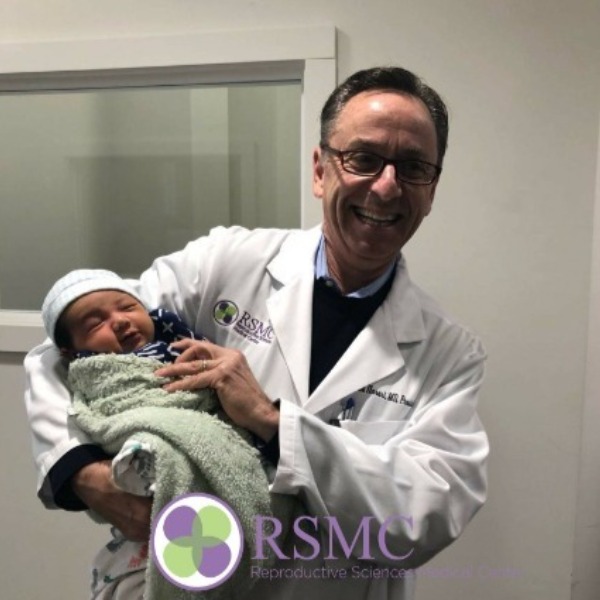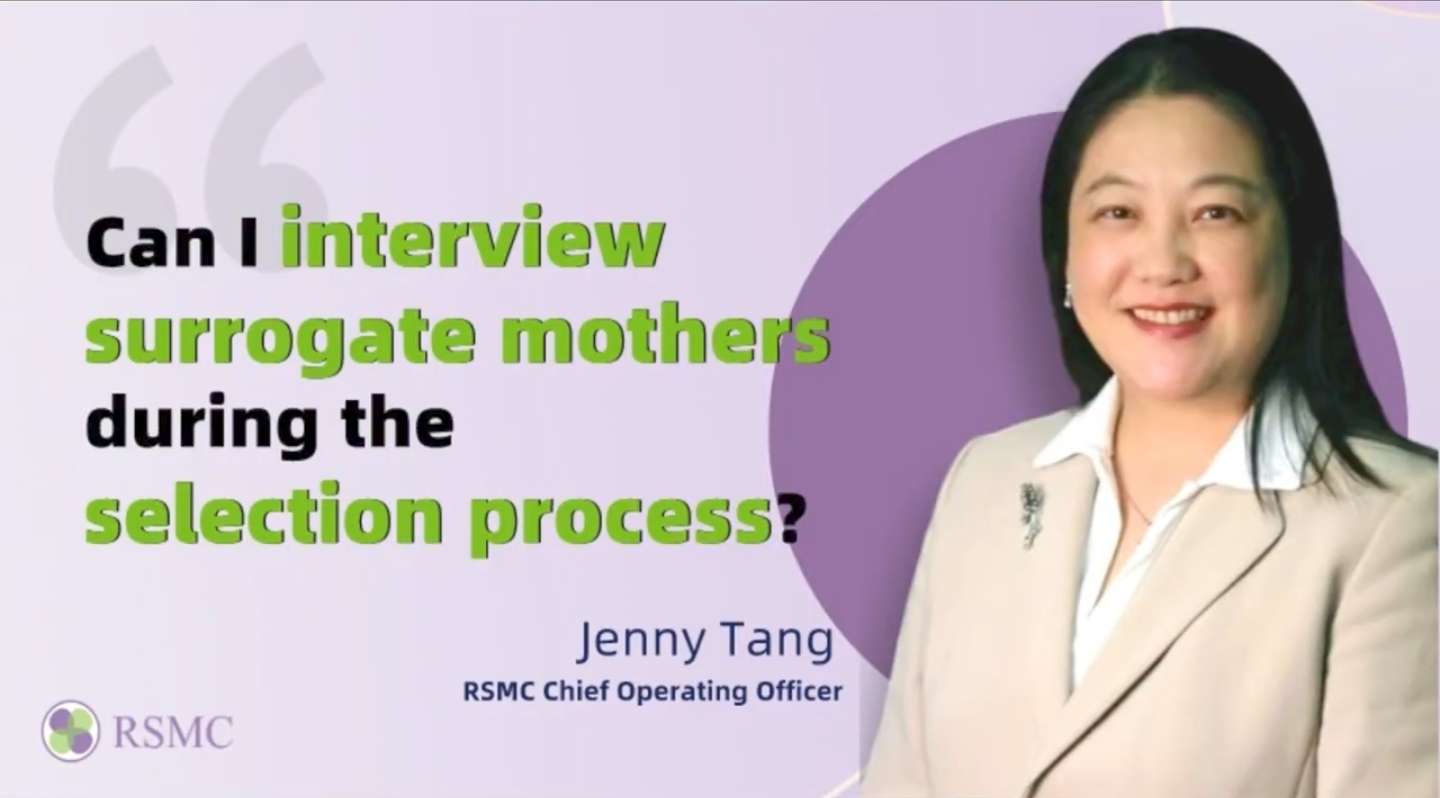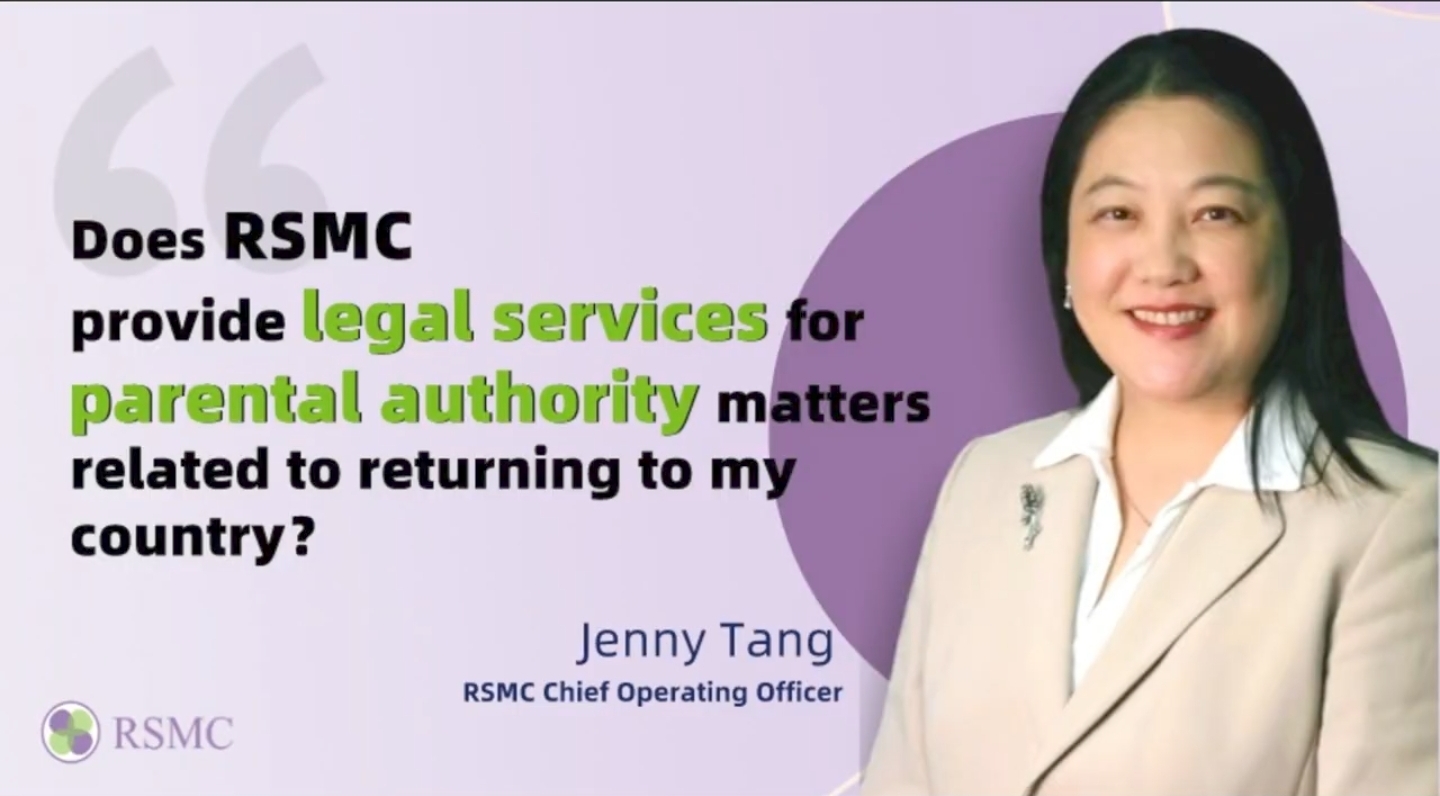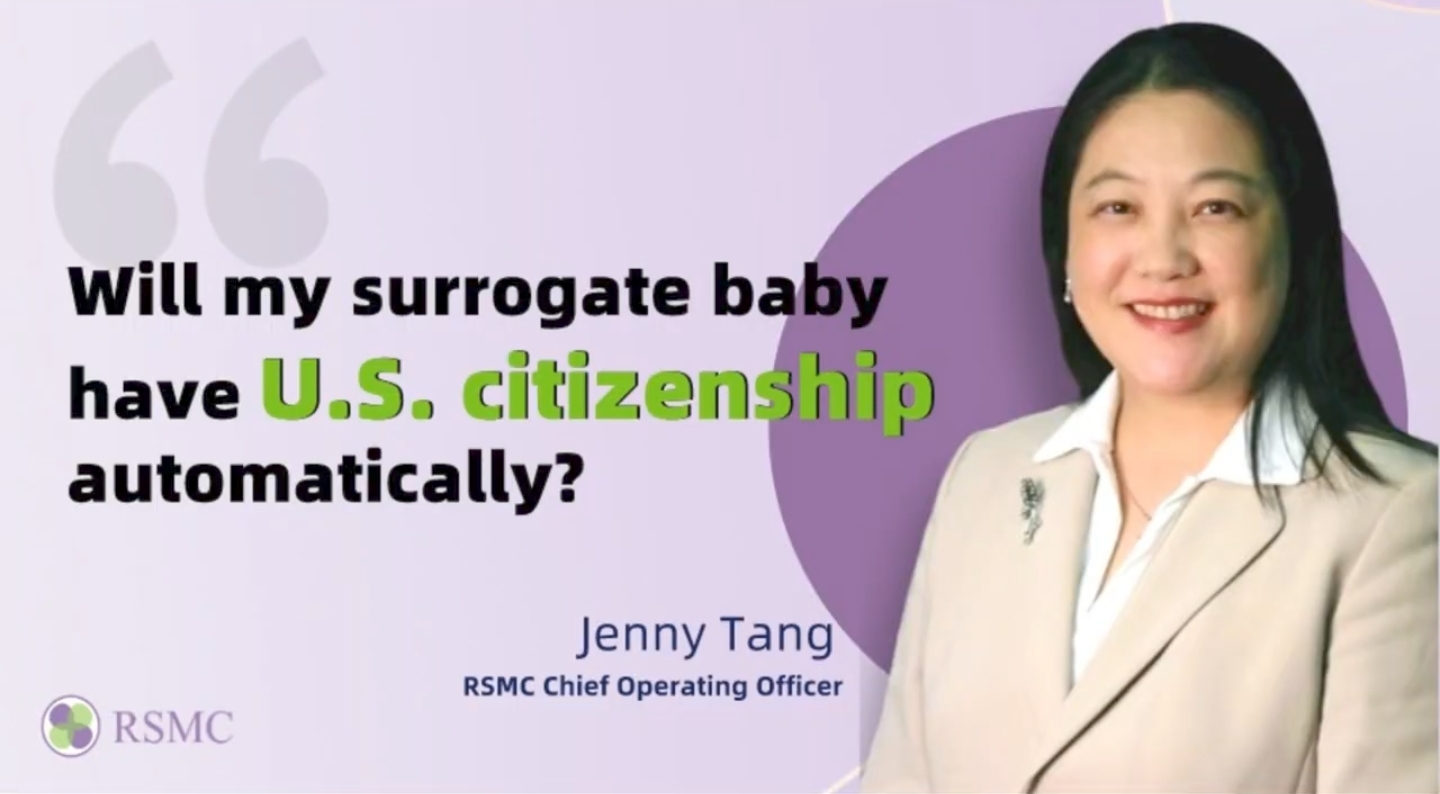Everything about Surrogacy: Meaning, Surrogate, Process, Cost & More

What is Surrogacy?
Surrogacy is also known as third-party assisted reproduction. It refers to using artificial reproductive technology to culture an embryo, and place the embryo into the uterus of a surrogate to conceive successfully. Infertility is one of the main reasons why intended parents opt for surrogacy. Same-sex male partners who are unable to conceive a baby naturally and often turn to surrogate mothers to help them during their journey to parenthood.

Why Should We Choose Surrogacy in America?
1.America Has the Most Advanced Technologies and A High Success Rate
The success rate of IVF in America is higher than that in developed countries like Taiwan, Thailand, Europe and so on. In fact, it is the highest in the world. In America, loads of technologies of IVF as well as surrogacy started earlier and have been well developed. The pregnancy rate after transferring an embryo through PGS / PGD is more than 80%.
America has the most fertility-friendly policy. IVF for same-sex partners, IVF for singles, surrogacy are legal in many states in America and are protected under laws. In America, all the parental rights of the intended parents、egg donors、sperm donors, and surrogates are highly valued.

What are the Advantages of RSMC Surrogacy?
1.Extensive Clinical Experience
RSMC Fertility Medical Center is located in San Diego, California, where our top fertility experts have more than 30 years of experience. RSMC aslo has one of the top three egg banks and surrogacy centers in North America. We are very professional and reliable.
2.Outstanding Medical Team
RSMC’s president, Dr. Harari, is the Chairman of the San Diego Association of Obstetrics and Gynecology. One of our medical team members, Dr. Ho has provided treatment to elite clientele, including authoritative government officials in Asia. They are all trusted by their clients.
The success rate of IVF mostly depends on the quality of the laboratory. RSMC’s IVF laboratory is certified by CPA (The College of American Pathologists), which is the highest international standard. High fertilization rate can be obtained. Through PGS, we can do our best to avoid chromosomal abnormalities and increase the pregnancy rate to 80%. If you are interested in our treatments, please feel free to contact us.
The Benefits Of Gestational Surrogacy
Surrogacy is a process where a woman carries a pregnancy for someone else who is unable to conceive or carry a child on their own. The earliest form of surrogacy was artificial insemination, but in the United States, traditional surrogacy using artificial insemination is no longer permitted. Most surrogacy arrangements involve the intended parent's own eggs and sperm, with embryos being created in vitro and then screened by PGS to identify genetic abnormalities before being implanted into the surrogate mother's womb.In cases where donor eggs are needed, RSMC Fertility has an elite egg bank available for use. Surrogacy has become a popular option for individuals and couples who face physical or medical limitations to natural conception, as well as for gay couples and single males who wish to become parents.
What Is The Differences between Gestational Surrogate & Traditional Surrogate
Surrogacy can assist people in many ways. The most common form is gestational surrogacy, in which the surrogate mother carries an embryo created with the intended parent's own eggs and sperm. In the United States, sperm and egg banks have become quite advanced, making surrogacy with donor eggs or sperm a viable option for single individuals, couples with fertility issues, and gay couples who wish to become parents.
However, it is important to note that many countries do not permit same-sex couples, single parents, unwedded couples, or intended parents who require a double donor to have a baby via surrogacy.
People Who Can Try Surrogacy
- You’re unable to conceive because of uterine irregularities.
- You have a history of multiple failed IVF cycles without a known cause.
- You have a medical condition that could cause great risk to yourself or your baby during pregnancy.
- When used in conjunction with donor eggs, surrogacy offers single men, LGBTQ+ individuals, and couples an opportunity to become parents.
How To Find a Surrogate Mother?
At RSMC, surrogate mothers undergo a strict screening process by RSMC experts. They cannot become surrogates through referrals by relatives or friends. Not many IVF clinics in the United States have their own surrogacy institutions, but RSMC has established one of the top three fertility centers in North America based on quality control and one-stop service. Every year, more than 8,000 surrogate mothers are available to help individuals and couples achieve their dream of having a child, and matching does not require a long wait.
To ensure the success rate and health of the child, RSMC has created its own surrogate mother database. The age of the surrogate mother is usually between 21 and 37 years old, and they have given birth to at least one child of their own. They also undergo infectious disease inspections, uterine inspections, medication inspections (no drugs, smoking, or alcohol), criminal investigations, and psychological screenings. Only 4% of applicants are accepted, ensuring strict quality control.
During the pregnancy process, the surrogate mother is monitored by physicians. Our case manager provides constant communication and support by reporting detailed reports on both the baby and surrogate mother to the intended parents weekly.

Steps for Selecting Surrogate Mothers at RSMC
1. The Intended Parent Information Form
You can specify your preferred surrogate mother's race, state, and even budget limit on the form, allowing our specialists to select the most suitable surrogate for you. With a large pool of surrogate mothers to choose from, you won't have to wait long - we have new qualified surrogates from legal surrogacy states available for selection every week.
2. Surrogate Matching Process
To start the complementary matching process, we collect the necessary identification followed by hand-selecting your matches based on your pathway to parenthood plan, Picture profiles of your potential Surrogates are sent to you. The surrogate's complete profile includes not only photos of her and her family, such as her husband and children, but also information on her state of residence, age, occupation, past pregnancy history, and her thoughts on this profession. In addition, you can also learn about her preferred methods of interaction with intended parents.
3. Secure Your Surrogate with a Signed Surrogacy Retainer
Once you've selected the profiles that you're interested in learning more about, we will share their public profile with you.The final step is to schedule a meet and greet video chat with your potential Surrogate Motherallowing you to move forward with confidence. Our bilingual specialists who can explain the contracts to you in Chinese and carefully answer any questions you may have to ensure that you have a thorough understanding of the surrogacy process and costs. We are committed to providing you with professional and reassuring support.
Step By Step Process For Surrogacy
1. IVF TREATMENT / Embryo Transportation
-
RSMC provides access to bilingual physicians and coordinators to guide clients through the surrogacy process and help them choose the best treatment options.
-
Intended parents have two choices for creating embryos: retrieve eggs and sperm in the US or transport embryos from overseas to the US.
-
US lab evaluates the embryo report and only qualified embryos are shipped to the US.
-
Those who choose egg or sperm donation can freeze their eggs or sperm and have them transported to the US.
-
Legal egg or sperm banks can help create embryos for the intended parents to use in their surrogacy journey.
2. Surrogate Selection and Legal Matters
-
Both intended parents and surrogate mothers undergo physical and mental evaluations and background checks.
-
Surrogate mothers are usually between the ages of 21 and 35, have previously given birth, and are women who love children.
-
Surrogate mothers can reject intended parents' requests if they do not agree with them.
-
Legal and regulated third-party assisted reproduction agencies provide clear expenditure items, including compensation for surrogate mothers' wage losses during pregnancy, prenatal examination costs, and insurance for medical procedures.
-
Funds are transferred to an escrow account under US law and managed by professional managers.
-
Surrogate mothers' compensation is detailed and regulated by law.
-
Any surplus after the process is completed will be returned to the intended parents.
3. Bring the baby home
-
The process takes approximately one and a half years from the day IPs register with RSMC until they have a baby.
-
The Case Management team informs IPs in advance to come to the US to receive their newborn baby.
-
Babies born in the US are granted citizenship, no matter the citizenship of their parents.
-
The child also enjoys US citizenship rights, such as free education from kindergarten to high school and the ability to apply for grants for college education.
-
The child's citizenship is not affected even if they reside overseas after birth.
-
Parents can apply for a green card for the child once they reach the age of 21.
-
RSMC helps clients obtain the American passport through partners who are experienced in navigating the US passport system.
-
Generally, RSMC suggests intended parents plan on going back home after 2 to 4 weeks to allow enough time for DNA testing, legal proceedings, issuance of the baby’s certificate, and application for visas or passports for the child.
Who is Involved in the Surrogacy Process?
The surrogacy process involves several key people, including your attending physician, surrogate mother, account manager, counselor, and lawyer. Each of these individuals plays an important role in guiding you through the process and ensuring that everything goes smoothly.
Initially, your counselor will assist you with the initial processes, such as scheduling physical exams and physician consultations, arranging follow-up appointments, and answering any questions you may have about the treatment. Your physician and their medical assistants will then work with you to complete the IVF treatment.
Once you have selected a suitable surrogate mother, your case manager will provide you with regular updates on the progress of both the baby and the surrogate mother. Additionally, your account manager will report to you weekly on the status of the surrogate, ensuring that you are informed every step of the way.
Overall, the surrogacy process is a collaborative effort that involves many different people working together to help you achieve your dream of having a child.
Are There Any Risks of Using a Surrogate Mother?
Starting a family through surrogacy can be a long and challenging journey, from finding a suitable surrogate mother to navigating legal and emotional challenges. As surrogacy laws and regulations vary greatly by country, it is important to understand the potential risks involved.
Medical risks are a concern for both the surrogate mother and the baby. During the pregnancy, the surrogate mother may experience health complications such as gestational diabetes, preeclampsia, and other pregnancy-related issues. To minimize these risks, RSMC closely monitors the health of both the surrogate mother and the baby throughout the process and provides them with high-quality medical care. Even in the event of unforeseen medical risks, RSMC provides insurance that complies with U.S. government regulations to compensate for any additional expenses, thus avoiding any budget overruns for our clients.
Legal Risks
Legal risks can also arise in the surrogacy process, particularly in countries where there are no clear legal regulations. This can lead to disputes over custody and financial compensation, which can be stressful and time-consuming for all parties involved. In contrast, the United States has a well-established legal framework for surrogacy that protects the rights and interests of both intended parents and surrogate mothers. At RSMC, we work with experienced legal professionals who specialize in surrogacy law to ensure that our clients' legal rights and interests are protected throughout the surrogacy process.
Emotional Risks
Emotional risks are also a concern in surrogacy, which can be an emotionally charged process that is stressful for all parties involved. Intended parents may experience feelings of anxiety, uncertainty, and guilt, while the surrogate mother may struggle with feelings of attachment to the baby and grief after giving birth. At RSMC, we hold regular group activities for our surrogates to support and encourage each other. Prior to becoming a surrogate, our candidates undergo a rigorous screening process, including having had their own children, ensuring that they receive support to make the decision to become a surrogate. RSMC is fully involved in every step of the surrogacy process, from medical care to surrogate matching, to ensure the physical and emotional well-being of our surrogates.
Financial Risks
Financial risks are also important to consider in surrogacy, as it can be an expensive process. The costs can include medical expenses, compensation for the surrogate mother, legal fees, and insurance. At RSMC, we work with our clients to develop a transparent and detailed surrogacy budget that takes into account all of the costs associated with the surrogacy process.
While surrogacy can be a wonderful way to start a family, it is important for intended parents to be aware of the potential risks involved. By working with a reputable surrogacy institution like RSMC, intended parents can receive the support and guidance they need to navigate the surrogacy process with confidence. At RSMC, we understand the importance of managing these risks and ensuring the safety and well-being of both intended parents and surrogates. We have a team of experienced medical professionals and legal experts who can guide intended parents through the surrogacy process and help to minimize potential risks.
What is the Cost of Surrogacy?
Preparation Fee |
|
Major Costs |
|
Legal coordination fees |
|
At RSMC, we are committed to being transparent and upfront about our surrogacy costs. It's important to note that costs may vary based on the surrogate's location and the specific requirements of the intended parents.
The Cost and Duration of Surrogacy in US
Surrogacy in US
If you have embryos located outside the US and would like to pursue surrogacy in the US, it is possible to transport the embryos internationally. This process typically takes around 1 year to 1.5 years and can cost approximately $160,000 to $170,000 USD. This fee includes the cost of shipping the embryos, as well as the medical and legal fees associated with the surrogacy process.During this time, the intended parents do not need to be physically present in the US. They can wait until after the child is born to come and meet their child.
Surrogacy with Egg Donation
Couples or gay men can also choose to use their own sperm and donor eggs and surrogacy. If they choose to travel to the United States to collect their sperm, they can return home after a week and proceed with surrogacy. The entire process takes approximately 1-1.5 years. Alternatively, if they freeze their sperm in another country and ship it to the US for surrogacy, the process takes the same amount of time but without the need for travel to the US until the due date of the baby. The cost for this option is approximately 190,000-200,000 USD.
Surrogacy with Donor Sperm
Couples or female same-sex couples who wish to have a child can opt for surrogacy using their own eggs and donor sperm. If they travel to the US to retrieve their eggs , they can return home after 2-3 weeks and then travel back to the US to receive the child before the expected due date. The process typically takes 11-13 months. Alternatively, if they have already frozen their eggs in another country, they can ship the eggs to the US. This approach takes 1-1.5 years, and they do not need to travel to the US until shortly before the expected due date. The estimated cost for the entire process is around $180,000-$190,000 USD.
Common Legal Issues in Surrogacy
Surrogacy is a viable option for those struggling with infertility, but it can raise questions about genetic connections between the surrogate mother and the baby. Rest assured, surrogacy does not affect the genetic makeup of the baby. In gestational surrogacy, the surrogate is not genetically related to the baby as the embryo is created using the intended parents' or donors' eggs and sperm. Therefore, there is no genetic link between the surrogate mother and the baby.
At RSMC, we believe that a surrogate mother's skin color should not be a factor in the selection process. What matters most is their overall health and fertility. That's why we have our own database of surrogate mothers, comprising women aged between 21 and 37 who have given birth to at least one child and have passed our rigorous selection process. This includes infectious disease screening, uterine examination, drug testing (no smoking or drinking), criminal investigation, and psychological screening. Our acceptance rate is only 4%, ensuring that we carefully screen every candidate.
Throughout the pregnancy process, our surrogate mothers undergo comprehensive prenatal care and receive regular checkups at our partner hospitals. We also provide weekly Chinese language reports from our case managers to ensure that our clients are informed and updated about their pregnancy and delivery.
Trust RSMC to provide you with the best and safest surrogacy experience for your family.
How to choose a surrogacy agency? What is a reasonable price range?
So, how can you select a reputable surrogacy agency? And how should you consider the cost of surrogacy? RSMC provides the following three guidelines to help you choose a reliable and reasonably priced surrogacy agency.
1. Focus on the IVF Clinic's experience and expertise rather than the cost of surrogacy
Surrogacy is a medical procedure, so the hospital's equipment and expertise are more important than the price. Since surrogacy is not guaranteed to be successful, the success rate can be influenced by factors such as the quality of the eggs and sperm, the quality of the embryos, and the health of the surrogate. Therefore, the clinical experience of the hospital can also have an impact on the outcome. RSMC has nearly 30 years of experience in infertility treatment, with top-notch physicians and a strong network of international partnerships, ensuring the highest chances of successful pregnancy.
2. Choose a formal and legal medical institution
3. Select a surrogacy company with transparent pricing
Which countries allow surrogacy?
Currently, there are only a few countries in the world where surrogacy is legally permitted. Among them, the countries that allow commercial surrogacy for foreign residents are even fewer. Here, we provide an introduction to the three most common countries:

United States
The United States is the most mature and legally well-regulated market for surrogacy. It allows single individuals, same-sex couples, and heterosexual couples to pursue surrogacy. The United States also has advanced technologies and is the most popular choice for surrogacy worldwide. For more detailed information on surrogacy in the United States, you can refer to the article "Everything about Surrogacy: Meaning, Surrogate, Process, Cost & More."

Ukraine
Ukraine allows surrogacy but restricts it to married heterosexual couples who have a medical certificate of infertility or inability to conceive. However, children born through surrogacy in Ukraine do not acquire Ukrainian citizenship or residency rights, unlike in the United States where surrogacy-born children can have dual citizenship. It is important to note that surrogacy in Ukraine is associated with risks, as the political and social situation in the country is unstable. Many surrogacy arrangements are conducted through unscrupulous intermediaries and illegal channels, and there are often disputes with inadequate legal protection. It is advisable to avoid high-risk areas like Ukraine for surrogacy. There have been controversies in the past, such as cases where parents were unable to bring their child back to their home country or when the child was not biologically related to the intended parents.

Russia
Russia allows surrogacy but restricts it to married heterosexual couples and single women. Due to the global COVID-19 pandemic, Russia has implemented strict travel restrictions, resulting in many babies born through surrogacy being stranded in the country. This indicates a lack of legal protection and imperfections in the law. Furthermore, in June 2021, several members of the Russian parliament proposed a draft to ban surrogacy for foreign citizens in Russia.
Comparison of Surrogacy-Legal Countries
The countries commonly known for providing legally regulated commercial surrogacy services are the United States, Russia, and Ukraine. Most people become aware of these countries through news. Many clients come to us after learning about celebrity surrogacy cases in the United States through the media. Information about surrogacy services in Russia and Ukraine, on the other hand, often comes from negative news stories, such as cases of exploitation by intermediaries, lack of biological relationship between the child and the intended parents, surrogate mothers refusing to return the child, or legal and travel restrictions preventing the baby from leaving the country.

While the cost of surrogacy in the United States is higher compared to Russia and Ukraine, it remains the top choice for intended parents. This is primarily due to the advanced IVF technology and high success rates in the United States, as well as the well-established legal framework surrounding parental rights. Children born through surrogacy in the United States are granted US citizenship, which provides advantages in terms of education and employment opportunities. Furthermore, parents can apply for a green card for their child once they reach the age of 21 through family sponsorship, making it an attractive option.

The surrogacy market in Ukraine is still in a state of flux, with reports of exploitation of local women in poverty who are exploited for large profits. Different surrogacy arrangements in Ukraine may involve various individuals profiting from the process. In such circumstances, the well-regulated system in the United States becomes more advantageous, as it offers contractual protection for both intended parents and surrogate mothers.

Russia
Russia even considered legislation last year to ban surrogacy for foreign citizens, indicating a desire by authorities to protect their international image from negative press related to surrogacy.
What is the Nationality of a Surrogate Baby in the US?
Surrogacy Eligibility in the US
Surrogacy laws and regulations vary by state in the US, with some states fully allowing surrogacy arrangements, while others have limitations or even prohibit it. However, California, where RSMC Reproductive Center is located, is the most open to surrogacy arrangements. Intended parents can be married or single, heterosexual or same-sex couples, or individuals. In terms of parental rights, intended parents have legal rights to the child born through surrogacy and can establish their names on the birth certificate. Intended parents can even view detailed profiles and photos of potential surrogates and egg donors. The United States has clear regulations and protections in place to ensure the health and safety of both surrogate mothers and babies. It is important to work with a reputable surrogacy agency to ensure that all legal requirements are met. RSMC is a trusted surrogacy center in California, with a team of experts dedicated to helping you navigate the legal requirements and achieve your dream of having a child through surrogacy. Contact us today to learn more.

Dr. David Harari
President and Chief Medical Officer
As a board-certified OB/GYN since 1986, Dr. Harari has treated many infertile couples over his career, utilizing surgical technologies such as robotics and minimally invasive procedures for the treatment of endometriosis, fibroids, and other gynecologic conditions. He has been instrumental in helping thousands of couples build the family of their dreams through both IVF and surrogacy.
About Dr. David HarariOther
-
2024/01/29surrogacy
Does RSMC Provide Legal Services for Bringing the Child Back to the Home Country?
-
2024/01/29surrogacy
Is My Surrogate Child Automatically a U.S. Citizen?



